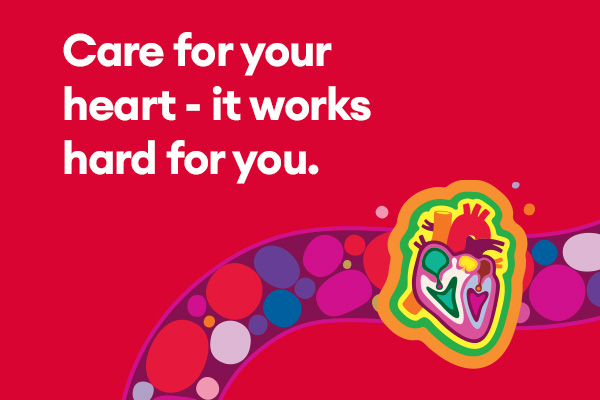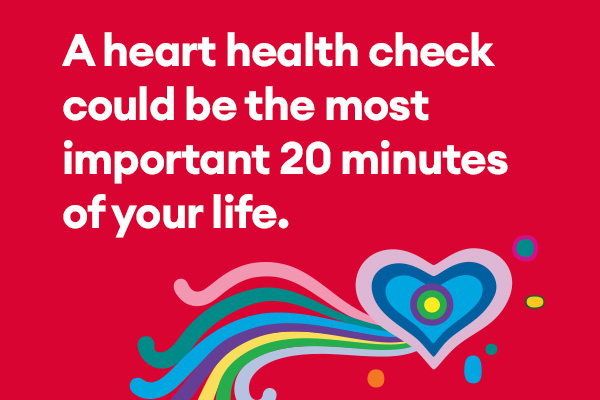Written by Medibank
January 2024
Two out of 3 Australians take a complementary medicine regularly, with dietary supplements containing vitamins and minerals used by nearly one in 2 people.1 So, if you’re wondering if there are heart health supplements you should consider taking, you’re not alone.

What is the best supplement for heart health?
Research suggests that some supplements may help to improve heart health.
For example, a large study from 2020 showed that omega-3 supplements might help protect the heart. These supplements, which contain omega-3 fatty acids, can reduce levels of triglycerides in the blood by about 15 per cent.2
Triglycerides are a type of fat in the body. If you have high triglyceride levels, combined with either high levels of LDL cholesterol – known as ‘bad’ cholesterol – or low levels of HDL cholesterol – known as ‘good’ cholesterol – you have a higher risk of fat building up in your blood vessels. Over time this can increase your risk of heart disease.
Common causes of high triglyceride levels include eating too many foods high in fat and sugar, carrying too much weight, and drinking too much alcohol. Not eating enough omega-3-rich food is another risk factor.
The study also suggested that taking supplements containing an antioxidant called CoQ10 may help to lower the risk of dying from any cause, including heart disease. Additionally, the study found that folic acid supplements were linked to a lower risk of stroke, which supports what an earlier study found.
In contrast, a 2022 study found that supplements containing vitamin C, vitamin D, vitamin E or selenium showed no effect on the risk of cardiovascular disease.
Should I consider taking heart health supplements?
Talk to your doctor
The Heart Foundation advises that, even though fish oil supplements are sometimes prescribed by doctors to help treat high triglyceride levels, it’s always a good idea to speak to your doctor before you start taking them. Plus, simply eating fish 2 or 3 times a week is an effective way to boost your intake of omega-3s. Oily fish such as salmon, mackerel, trout, and sardines contain the largest amounts of the essential fatty acid.
When it comes to other vitamins and supplements that contain minerals or herbs, the Heart Foundation says there isn't enough strong proof that they can reduce the risk of heart problems or provide your heart any benefit - so, they shouldn't be used to prevent heart issues.
What if I have a heart condition?
It’s important to note that if you’re living with a heart condition or taking heart medicines, you should seek advice from your doctor before you start taking any supplement that you can buy over the counter without a prescription. Certain vitamins and supplements can interact with heart medicines, so if you’re already taking one, let your doctor know so they can check it’s not causing you harm.
How can I improve my heart health?
While supplements may not always be as beneficial for heart health as you might think, there are several other things you can do to keep your heart healthy.
These include eating a heart-healthy diet, full of fruit and vegetables, wholegrains, fibre and unsaturated fats – including omega-3s – and exercising regularly. This can reduce the risk of being overweight and developing high cholesterol and high blood pressure, all 3 of which are risk factors for heart disease.
Reducing alcohol intake, taking steps to control your stress levels and not smoking are also heart-healthy habits.
Prevention of heart disease also involves catching and treating any risk factors as early as possible, so regular Heart Health Checks are recommended to anyone aged 45 years and over, or 30 years and over for Aboriginal and Torres Strait Islander peoples.

Medibank Type 2 Diabetes Program
This 12-month program includes consultations with a dietitian and a supported meal plan that aims to help eligible members achieve a healthy weight and manage their type 2 diabetes. Clinical and product eligibility criteria apply.
Read more about heart healthy living
Looking for something else?
Visit Heart health for more information.
Things you need to know
1 NPS Medicinewise; The safety of commonly used vitamins and minerals; retrieved June 2023
2 Cochrane Library; Omega-3 fatty acids for the primary and secondary prevention of cardiovascular disease; retrieved June 2023
While we hope you find this information helpful, please note that it is general in nature. It is not health advice, and is not tailored to meet your individual health needs. You should always consult a trusted health professional before making decisions about your health care. While we have prepared the information carefully, we can’t guarantee that it is accurate, complete or up-to-date. And while we may mention goods or services provided by others, we aren’t specifically endorsing them and can’t accept responsibility for them. For these reasons we are unable to accept responsibility for any loss that may be sustained from acting on this information (subject to applicable consumer guarantees).











